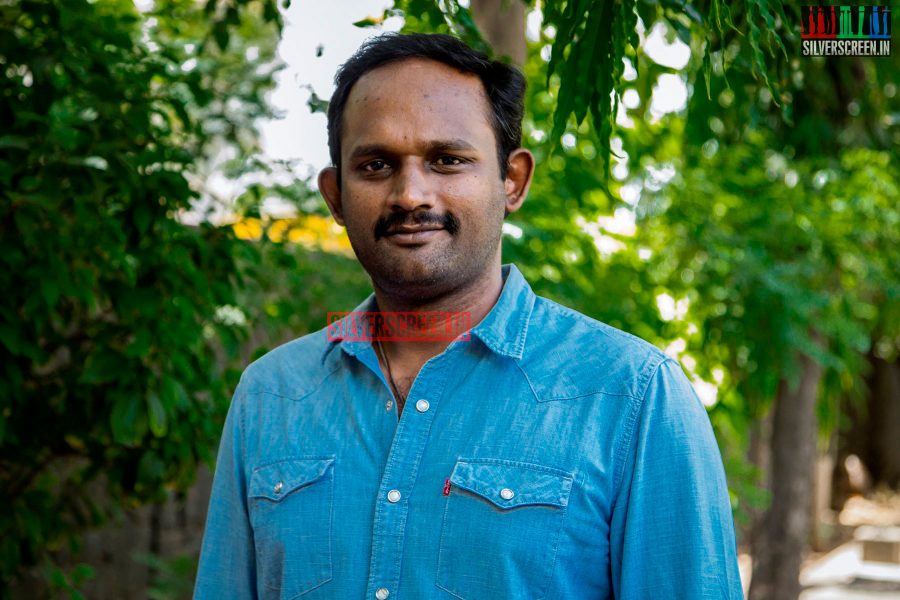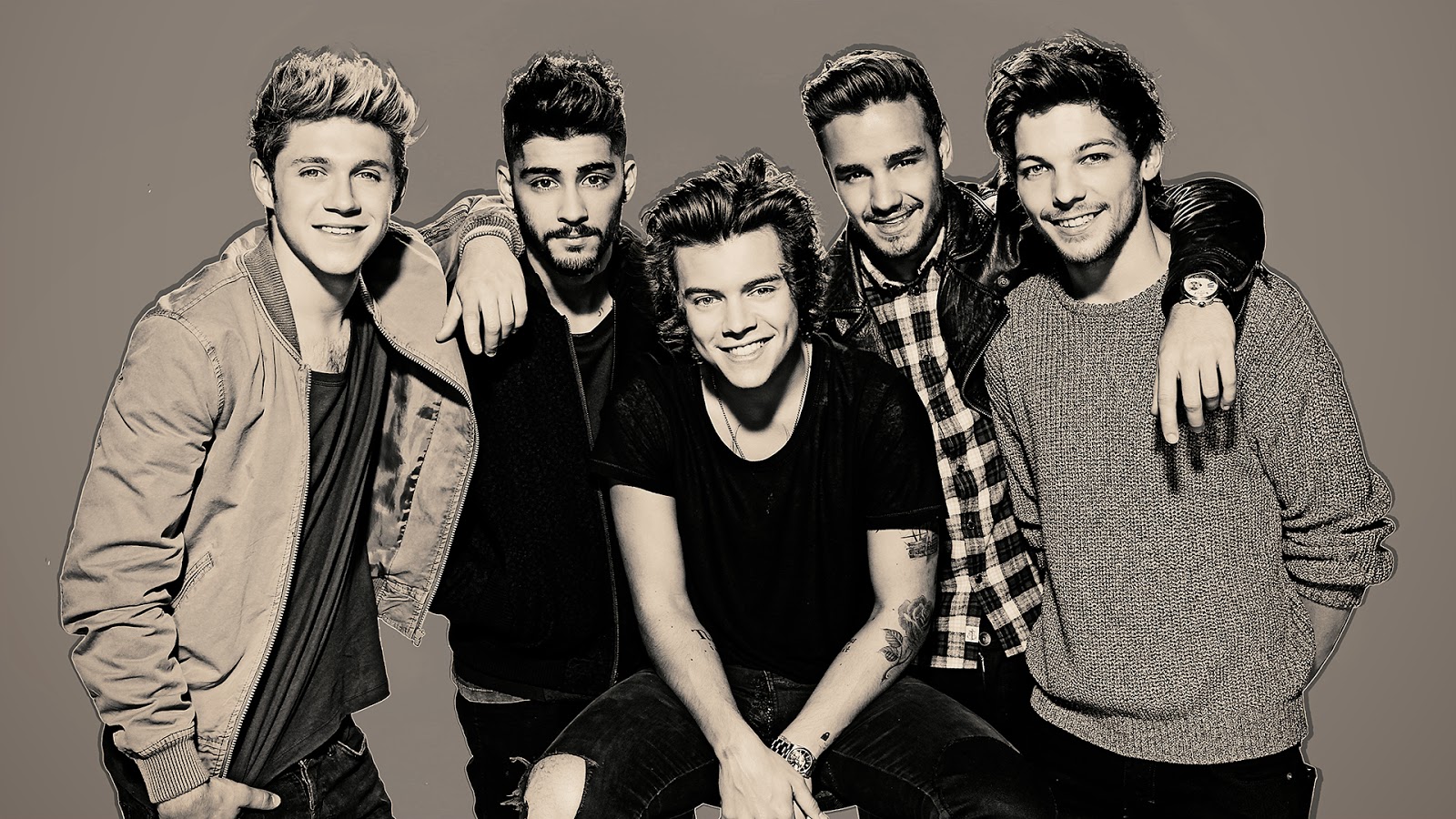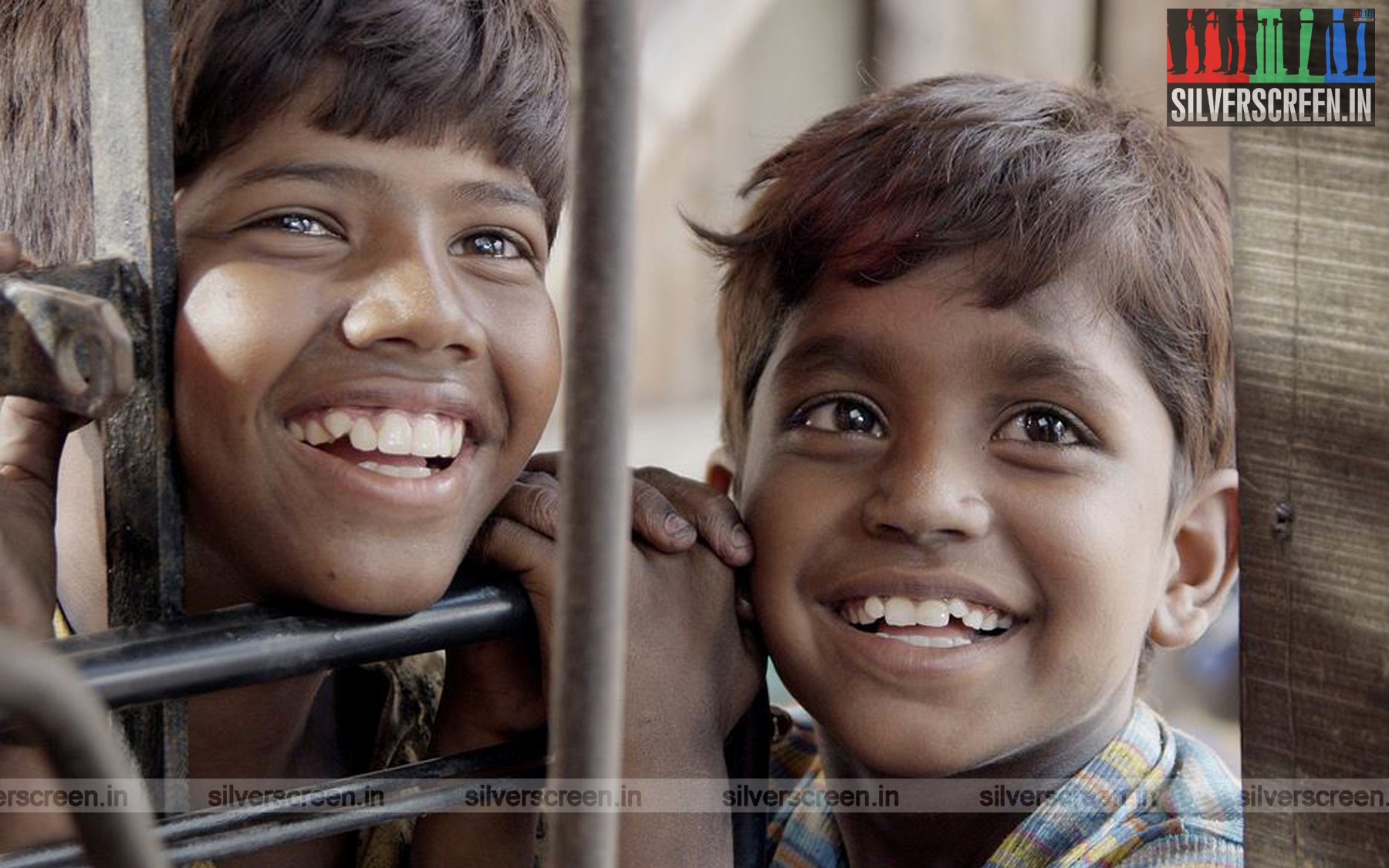
As Kaakka Muttai readies for release, its director Manikandan talks to us about trusting his instincts, living his dream and yes, pizza.
There’s a certain confidence in Manikandan that’s hard to ignore. It comes from being solely responsible for his decisions thus far, he says. An entirely self-made man, he declares with a tingle of pride. Life for him unfurled in a series of instinctive decisions, ones that he made with complete knowledge of the consequences. “Thus is life. But, no regrets,” he shrugs.
*****
Kaakka Muttai was also one such decision, says Manikandan. Many warned the director of the consequences of making his directorial debut with such a script. But he paid them no mind. “Whenever I rely on my instincts, I know that the result could be an utter flop or an astounding success. I am prepared for both events.”
The story behind Kaaka Muttai is an oft-repeated one. Manikandan insists that it is something that people still question him about, as ‘they’re all curious about its origins’. His young son, all of nine years old, is a great fan of pizza and would often insist on eating it. “Though we eat it quite often, it is still the type of food that the middle class cannot afford. Rs 1500 rupees for three people. Service tax, VAT etc add another Rs 200. In the current environment, a family uses up about Rs 5000 every month for food.
I wanted to delve deeper into this fascination we have with pizza that makes us want to spend about a quarter of our food money on it. I think it really isn’t about the taste of the food. It’s more about the visuals they see on the advertisements. Pizza, noodles…they’re all made into a sort of beyond the world experience…more than just eating a slab of bread.”
*****
It got Manikandan thinking about the people who could not afford this indulgence – about boys with fathers struggling to feed their families, orphaned slum kids who dream of the food, which is far beyond their reach. “The idea was to tell a story about a couple of poor boys and their need to go taste the food that they see on screen every day. How would they go about it? What would they do? It’s their experience towards this dream that forms the crux of Kaakka Muttai.”
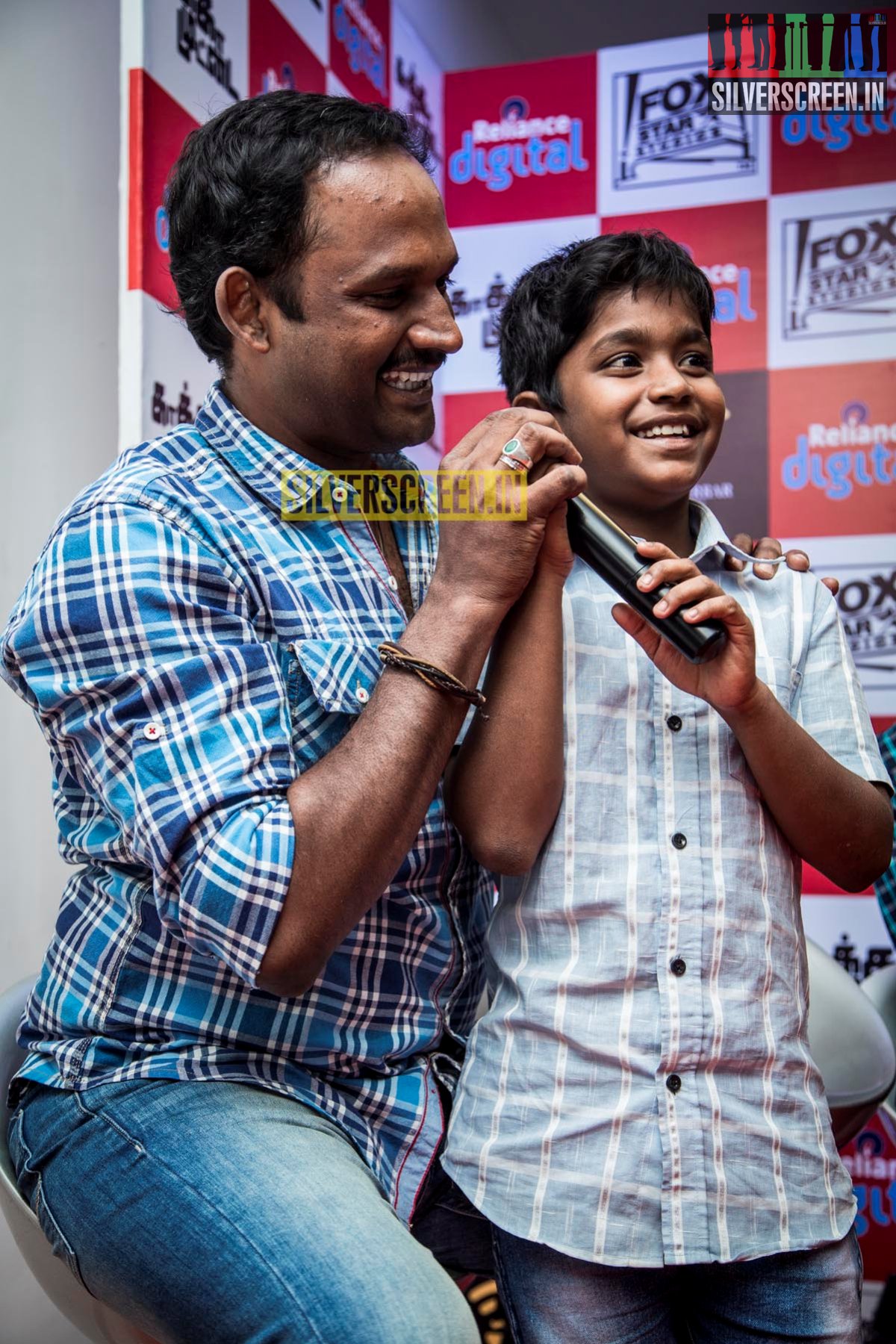
His path towards realising this idea was made easier when Vetrimaaran expressed interest in producing the venture. The same wouldn’t have been possible 10 – 20 years ago, he says. “Filmmakers can be bold, now. There are so many producers out there. Ten years ago, there weren’t many. There were six producers and your film career depended on them liking your script. If they did not like it, then you had to make compromises. Now, it is not like that anymore. A lot of people have turned producers…there is this confidence that I could become one as well if I don’t find anyone to back my story.
I know I can make a film in Rs 30 – 40 lakhs and I know how to finance it too. Take my producers for instance, one is a director and the other is an actor. It makes things easier. Also, no compromises. I can be bold and tell producers that this is my vision and I won’t change anything. Change panromo illayo, at least dhairyama pesalaam.”
*****
Manikandan was surprised when he realised that the challenges he faced while making this film were not due to ‘money’. “Through the course of its making, I figured out that the quality of a film and its standards do not depend on the financial aspect of things. It was more to do with how the people behind its creation were handled. Even if I’d received Rs 2 crores extra for the film, there was no place I could have spent it on. But handling people? That was the real challenge. It was tougher than I thought it would be.”
Though they did not set out to make a movie for the awards or festival scene, Kaaka Muttai did go on to perform well in both arenas. “I wanted to make a simple film that everybody would understand. I wanted it to be a quality film, and the only intention I had was that it should meet the standards I had set for it. I did not want it to be a showcase of intellectual thoughts or something like that. I wanted it to be a story that would reach everybody. Apart from that, the awards and the acclaim have been a happy by product of our journey towards getting this concept across to the audience.”
Apart from pizza and everything else, Manikandan wanted to address the way we’re dealing with globalisation. “I believe that it is necessary, yes, and quite profitable too but not at the expense of our roots and traditions. I am the kind of person who does not believe in demolishing farmlands to build factories and industries. That said, I did not want to preach about this to the people. While Kaaka Muttai will reflect the views that we all hold on this issue, it would not preach. It will make you remember your childhood. It also has other things to tell.”
*****
A native of Usilampatty near Madurai, Manikandan moved around quite a bit in his childhood, the consequence of having a policeman father. In 33 years, he has made a habit of trusting his instincts. One of them, was his decision to leave behind a career in mechanical engineering, to devote his time to his true passion. “I was working as a Mechanical Supervisor when I had the urge to do something with my natural talents. I draw well, and so I decided to leave my job behind and become an artist. It was a natural transition from there onto photography and eventually, cinematography. I could do it full time because I realized that I was quite good at it. I received a lot of praise.”
Accolades aside, this was a very personal choice for Manikandan. It was driven by his desire to be satisfied with life.” I drew a lot of satisfaction from my work, my photos. To be able to create something is in itself a big thing. That feeling of satisfaction is what drove me to my current position. I create for myself, not for approval.”
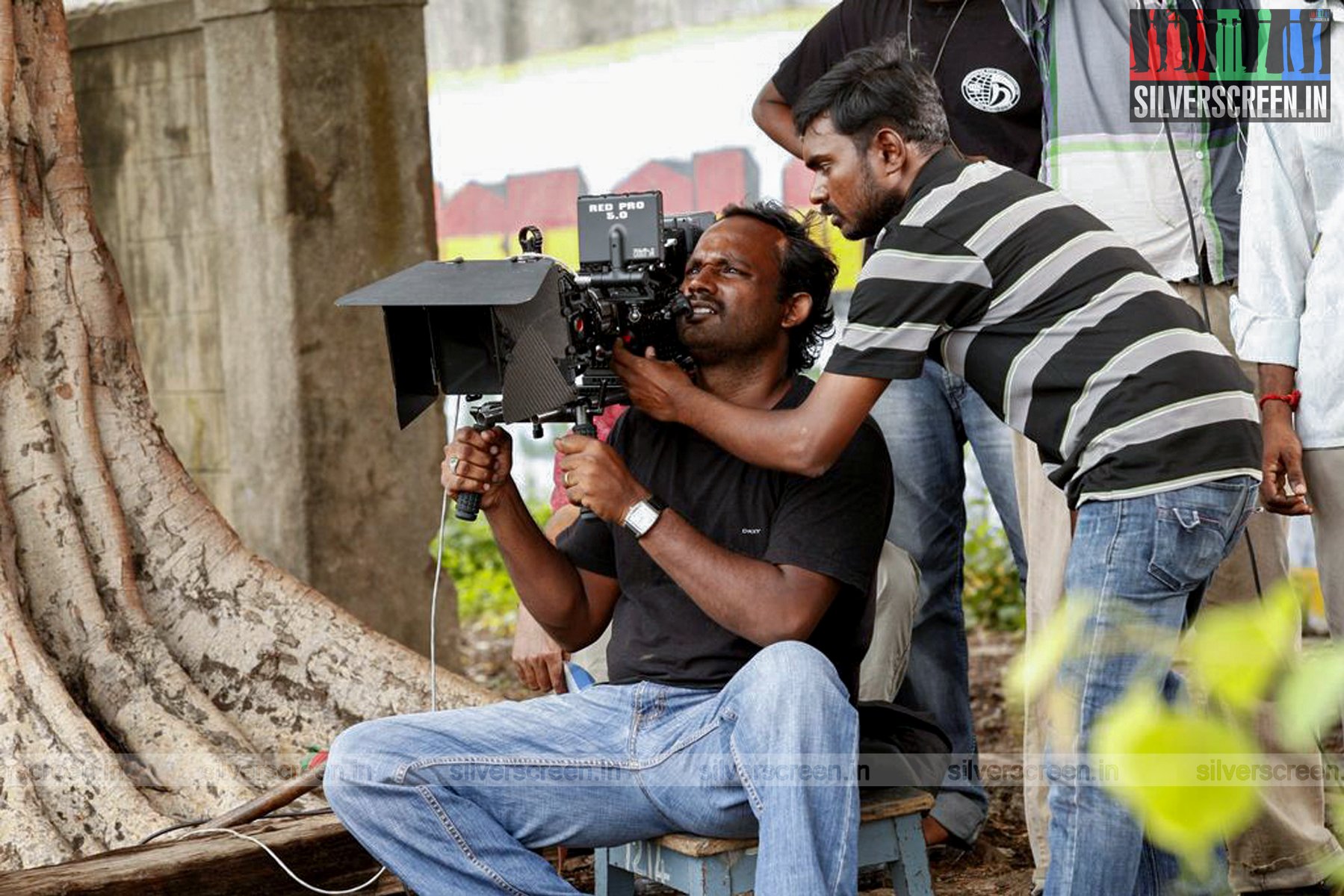
At heart, Manikandan still remains a cinematographer, basic ah. A short film called Wind, was his calling card to the cinema world. After that, he switched to direction. Even now, he insists, that cinematography and script writing hold more allure than direction. This, at a time, when he has directed two films in a span of as many years (his Kuttramum Dhandanaiyum is currently in post-production). “I have many ideas. I find release when I pen them and get them out of my head. But my true passion remains painting. When you paint using a camera, it becomes cinematography. So I lean towards it more.”
Manikandan observes that there are still many that dismiss filmmakers and their work. “From outside, our jobs seem easy. Our salaries draw the ire of people. It seems very easy for people like us to get money and fame. Sometimes the standard of cinema that yields this level of fame is also low. So it is only natural for people to stop and say, ‘ivan yenna pannitaannu ivlo kondaadaraanga’. You just have to take it in your stride. Because the only way you can get these people to approve of you is if you build temples.”
Recommended
Criticism too doesn’t faze him. He prefers to stay above it all. “There’s this quote that that I like. ‘You can investigate butterflies all you want. But you cannot create something like it.’ Films are like that. You can criticise it however you want. You can make fun of it, tear it apart. But the truth is that there will always be a chasm between the product you’re seeing onscreen and the vision in the director’s head. Until you understand both sides, you can never truly set out to review things.”
*****
An introvert who prefers his small circle of family and friends, Manikandan spends his free time on his creative pursuits, of which there are many. Be it carving wooden furniture or painting images that have taken hold of his mind, the director leads a satisfied life, full of the things that bring him joy.
Besides, like he says, he hasn’t bought a birthday gift in years. He makes them all himself, you see.
*****
The Manikandan interview is a Silverscreen exclusive.
